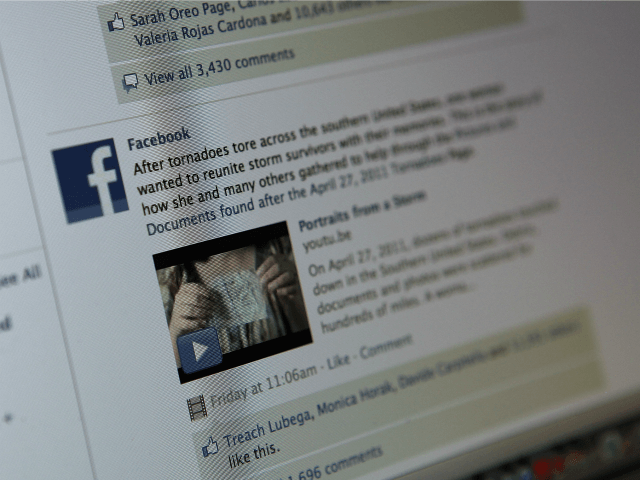The social media giant Facebook has restored the more than two dozen conservative Catholic pages it had mysteriously blocked on Tuesday, blaming the incident on “a spam detection mechanism on the platform.”
Observers are still skeptical, since Facebook seemed to target only conservative Catholic pages with a significant following, whereas a glitch in the system would have randomly blocked sites regardless of their orientation. The blocked Catholic pages generally had between hundreds of thousands and up to 6 million followers, according to Catholic News Agency (CNA).
One of the blocked pages called “Fr. Rocky” belonged to a U.S. Catholic priest Fr. Francis J. Hoffman, executive director of Relevant Radio, whose page had 3.5 million likes. Another site, “Catholic and Proud,” had 6 million followers and was similarly blocked.
Some of the page administrators of the blocked Catholic sites speculated that perhaps they were being censored, since Facebook has been accused in the past of censoring “conservative” news and websites, an allegation that Facebook CEO Mark Zuckerberg has denied.
One page owner, Kenneth Alimba of Nigeria, said he believes he was targeted specifically because it was a Catholic page. “They’ve fought and continue to fight anything Catholic and conservative,” he said.
In Facebook’s official response, a spokesman stated (in Spanish): “The pages were restored. The incident was accidentally caused by a spam detection mechanism on the platform. We sincerely apologize for any inconvenience this may have caused.”
A website called ChurchPop has suggested that the justification is unconvincing, and has offered what it deems to be two “more plausible” explanations for the incident than the official one provided by Facebook.
According to a first possible scenario, “some anti-Catholic group coordinated reporting the affected pages as spam, and something about that triggered an automatic action on Facebook.” As a corollary, an “anti-Catholic Facebook employee charged with reviewing spam reports” could have decided to use the spam reports as an opportunity to dismantle the pages, it said.
A second possibility, ChurchPop suggests, is that “a rogue employee who doesn’t like the Catholic Church used their power to ban the pages, and when Facebook found out about it they reversed it.”
While it is “highly unlikely” that Facebook itself is targeting Catholics, both of these hypotheses “seem more plausible than a spam detection glitch targeting dozens of Catholic pages in multiple languages,” the website proposes.
“It would explain why, as far as we know, only Catholic pages were affected, why not all major Catholic pages were affected, and why the action was quickly reversed for all pages,” it stated.
Of the known affected Catholic pages, 21 are based in Brazil, and four are English-language pages, with administrators in the U.S. and Africa.
Follow Thomas D. Williams on Twitter Follow @tdwilliamsrome

COMMENTS
Please let us know if you're having issues with commenting.